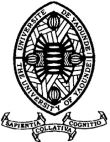État Nutritionnel des Femmes Atteintes de Tuberculose à Ouagadougou (Burkina Faso)
DOI :
https://doi.org/10.5281/hra.v1i4(Suppl%201).4978Mots-clés :
Tuberculose, Dénutrition, indice de masse corporelle, femme, facteurs associés, Burkina FasoRésumé
ABSTRACT
Background. Poverty and extreme hunger constitute a huge public health threat that has a substantial impact on female’s health and increases the burden of tuberculosis (TB) in sub-Saharan African countries. Amongst females, TB is associated with significant adverse consequences for their health security especially in developing countries where the health of women is worse particularly in terms of nutrition. Objective. To assess the prevalence of undernutrition and evaluate whether adult female TB patients are more likely to have undernutrition than elder females with TB in Burkina Faso. Methodology. In the Health Centre Region of Burkina Faso, we conducted a cross-sectional survey with face-to-face interviews of patients aged 15 years and older with TB (n=104) from March to April 2019. Undernutrition was defined as a body mass index of <18.5 kg/m2. Multiple logistic regression analyses were performed to determine the correlates of undernutrition. Results. The prevalence of undernutrition was 39.4% in which severe, moderate, and mild thinness was 7.7%, 8.9%, and 19.5%, respectively. Most of them (40.8%) were unemployed, and 85.6% had low monthly income. Adult females aged 35-44 years (AOR =16.7, 95% CI: 1.89-147.81), and 45-54 years (AOR= 16.0, 95%CI: 1.82-141.35). Meals reduced (AOR= 11.1, 95%CI: 1.24-99.72) were associated with increased odds of undernutrition. Conclusion. Adult female patients with TB were more likely to develop undernutrition. Assessment of nutritional status should be part of the routine treatment care during the intense phase of TB treatment in Burkina Faso.
RÉSUMÉ
Contexte. La pauvreté et la faim extrême constituent une énorme menace pour la santé publique qui a un impact considérable sur la santé des femmes et alourdit le fardeau de la tuberculose dans les pays d’Afrique subsaharienne. Chez les femmes, la tuberculose est associée à des conséquences négatives importantes pour leur sécurité sanitaire, en particulier dans les pays en développement où la santé des femmes est précaire et surtout leur état nutritionnel. Objectif. Évaluer la prévalence de la dénutrition et évaluer si les femmes adultes atteintes de tuberculose sont plus susceptibles de souffrir de dénutrition que les femmes âgées atteintes de tuberculose au Burkina Faso. Méthodologie. Dans la région du Centre de santé du Burkina Faso, nous avons mené une enquête transversale avec des entretiens en face à face avec des patients âgés de 15 ans et plus atteints de tuberculose (n = 104) de mars à avril 2019. La dénutrition a été définie comme un indice de masse corporelle de <18,5 kg/m2. De multiples analyses de régression logistique ont été effectuées pour déterminer les corrélats de la dénutrition. Résultats. La prévalence de la dénutrition était de 39,4 %, dont 7,7 %, 8,9 % et 19,5 % respectivement. La plupart d’entre eux (40,8 %) étaient au chômage et 85,6 % avaient un faible revenu mensuel. Femmes adultes âgées de 35 à 44 ans (AOR = 16,7, IC à 95 % : 1,89-147,81) et de 45 à 54 ans (AOR = 16,0, IC à 95 % : 1,82-141,35). Les repas réduits (AOR = 11,1, IC à 95 % : 1,24-99,72) étaient associés à des risques accrus de dénutrition. Conclusion. Les patientes adultes atteintes de tuberculose étaient plus susceptibles de développer une dénutrition. L’évaluation de l’état nutritionnel devrait faire partie des soins de routine pendant la phase intense du traitement de la tuberculose au Burkina Faso.
Téléchargements
Publié-e
Comment citer
Numéro
Rubrique
Licence
Authors who publish with this journal agree to the following terms:
- Authors retain copyright and grant the journal right of first publication with the work simultaneously licensed under a Creative Commons Attribution License CC BY-NC-ND 4.0 that allows others to share the work with an acknowledgement of the work's authorship and initial publication in this journal.
- Authors are able to enter into separate, additional contractual arrangements for the non-exclusive distribution of the journal's published version of the work (e.g., post it to an institutional repository or publish it in a book), with an acknowledgement of its initial publication in this journal.
- Authors are permitted and encouraged to post their work online (e.g., in institutional repositories or on their website) prior to and during the submission process, as it can lead to productive exchanges, as well as earlier and greater citation of published work










